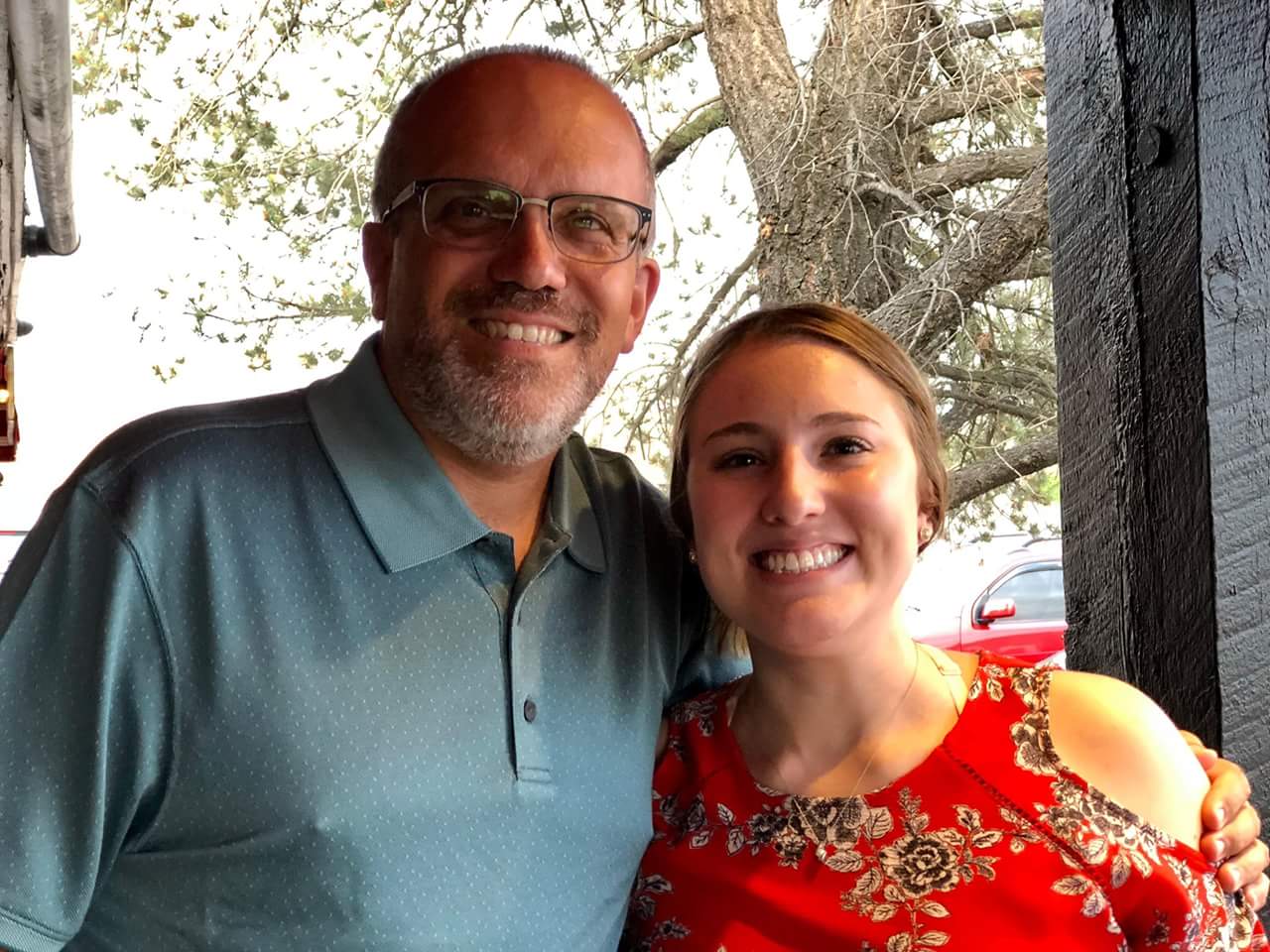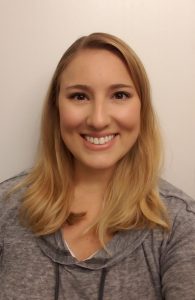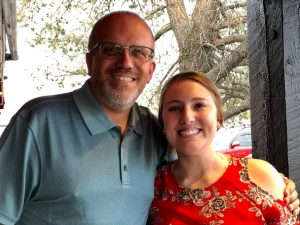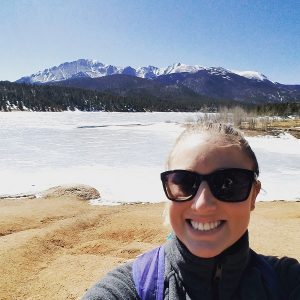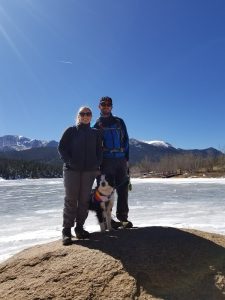On a daily basis, Amy Juzwin ’14, who majored in criminal justice sciences (CJS), works closely with federal agents and attorneys. While at Illinois State, Juzwin was not sure what her career path would look like, but she actively sought advice from faculty, which led to her first internship.
During this period, she took networking seriously and was open to new experiences. Since graduating, Juzwin has worked on various exciting projects with the federal government. Her journey and experience is proof that it is OK not to have your career path figured out right away, but with an open mind and by putting yourself out there, you will do great. The College of Applied Science and Technology’s interview with Juzwin will leave you feeling inspired:
Let’s go back to your undergrad days. What led to your decision to major in CJS?
Originally, I was an environmental education major at the University of Minnesota. After completing an internship in my major after my sophomore year, I had a change of heart. I spent the next year at community college to explore other options. Not knowing what the next step was, I took a variety of classes including an intro to criminal justice class. The subject stuck out to me as something I was very interested in learning more about. After discovering the major could lead to career paths other than policing, which wasn’t a good fit for me, I transferred to ISU and became a CJS major. I wanted to learn more about the legal system, evidence, and investigation.
What was the best part of being a CJS major?
The best part about the CJS major was the teachers. I appreciated hearing honest feedback about their real world experiences working as professionals in their field. These discussions helped me learn what type of jobs are available, what type of skills/education I would need, and what job was best suited for me.
One of my favorite classes was with retired Judge (Donald) Bernardi, learning the foundation of criminal law that I use every day in my professional life. I also appreciated the teachers who shared their passion for their areas of research with their students.
I particularly enjoyed Dr. (Michael) Gizzi’s heated discussions of Fourth Amendment issues and landmark decisions by the Supreme Court, which are topics that come up often in my work. I was also fascinated by Dr. (Shelly) Clevenger’s work with how victims and women interact with the criminal justice system.
You discovered your passion for investigation during your internship. Tell us more about that. How did you find out about the internship? How did you navigate this experience to your current career path?
When it was time to choose an internship, I was not at all sure of what I wanted to do. I wanted it to be a meaningful experience, especially if it could translate to employment after graduation. I did not want to be in local law enforcement, but was still interested in investigations. Tracy, the internship coordinator, helped me find resources to research federal investigative agencies. I narrowed it down to U.S. Postal Inspection Services (USPIS), or U.S. Dept. of Health and Human Services, Office of Inspector General (HHS-OIG). I decided to take a leap of faith and apply for an internship with HHS-OIG in their Office of Investigations in Chicago, despite knowing about them only what I could find on the internet.
It turned out to be an excellent experience, one that forged the path for my future career with the federal government. I used my time there to shadow fourteen federal agents. I asked them questions about their education, previous employment, how they got started with the federal government, thoughts on their career, and any advice they had to help me be successful. I helped them with day-to-day tasks and learned anything they would be willing to teach me. This turned out to be an excellent strategy because I later began working for the U.S. Attorney’s Office in Chicago as a contractor in the health care fraud section, which is worked primarily by (you guessed it) HHS-OIG federal agents, who I already knew very well. I found that I enjoyed assisting both the agents and attorneys in a role often referred to as “litigation support.”
I functioned at times as a paralegal, an analyst, and IT consultant offering support for trials, research, data analysis and investigative tasks. In this role, I truly found my passion. As it turns out, litigation teams lean heavily on support staff to build effective investigations and litigations.
Run us through a typical day in your life.
8 a.m.—Walk to work in downtown Denver. Answer emails and voicemails; prioritize all tasks for the day. My workload varies based on how many trials or indictments I am preparing for.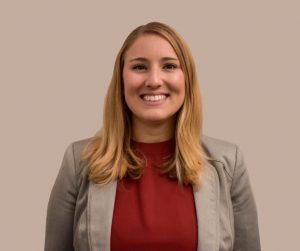
9 a.m.—Attend case team meeting with assistant United States attorney (AUSA), federal case agents, and analysts. Here, I learn what type of discovery our case will have and how best to plan to process it. The agents give us an update about investigative activities they have planned for the case. I make a list to go over with the attorney later so we can keep to our deadlines.
11 a.m.—I received a lot of discovery at my meeting, so I spend the next few hours organizing and processing it.
12:30 p.m.—Run home on my lunch break to walk my super cute, high-energy dog, Shadow. I grab some lunch on the go! We usually have food trucks and carts near our office at lunchtime.
1:30 p.m.—Meet with members of a working group regarding the national opioid crisis. We strategize about ways federal law enforcement can reduce the harm caused by opioids in our community. The opioids crisis overlaps with my background knowing the healthcare system.
3 p.m.—Do some analysis of data for a few of my cases involving either health care or opioids. I review voluminous data and create charts and summaries that I will give to the attorney. It is important for me to be able to look at thousands of rows and columns and identify trends that will be further researched by the agents and analysts, because it helps to build our case.
5 p.m.—Time to go home! My husband and I both work downtown, so we meet up for a bite to eat. We might go for a quick hike (20 minute drive to the mountains), or visit one of the many fun places in downtown Denver: breweries, museums, coffee shops, restaurants, shopping, and outdoor recreation areas. Shadow of course joins us for most of these activities. Denver is very dog friendly!
What advice would you give to prospective and current #Redbirds interested in this career path?
The single most important thing is to keep an open mind. I can’t stress it enough how important this is. I wasn’t sure what I wanted to do with my CJS degree, so I opened my mind and absorbed as much information as I could. I talked to ISU teachers and later, people at my internship. I took their advice about obvious things like how to conduct myself professionally, but also things like resume writing, balancing family-work life, and networking. I’ve found people in this field are often willing to give guidance if you are willing to ask for it.
This year, there was a group of interns at my office. I gave an open invitation to have coffee or lunch since I was in their shoes just a few years ago and was surprised that not one of them took me up on the offer. I personally found great success early in my career in taking people up on such offers. People started to remember me for job opportunities because I was vocal about my intentions. I made some amazing professional connections and some lifelong friends. Putting yourself out there is scary, but it pays off in so many ways. It is easy to forget that everyone in this career path had to start somewhere. If you are willing to reach out to others and keep an open mind, you will learn about opportunities that you did not even know existed.
Hope you enjoyed this interview. Follow CAST on Facebook, Twitter, and Instagram to stay up to date on all our activities.
